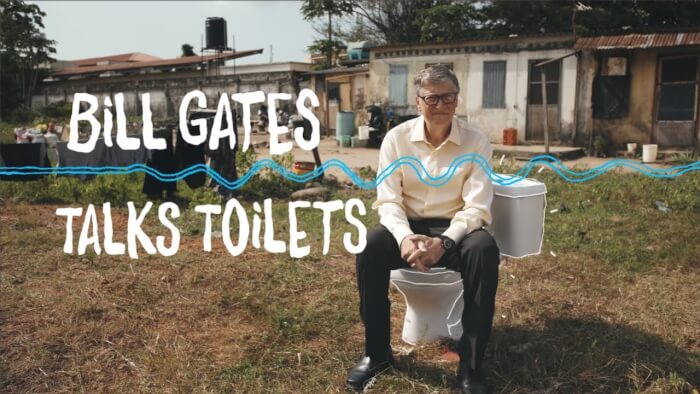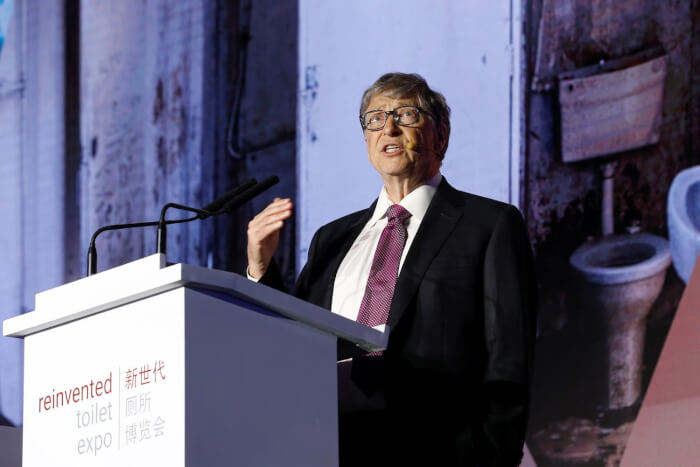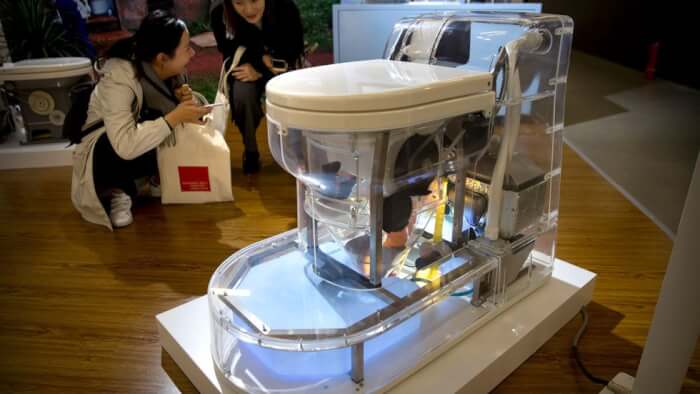Bill Gates: Reinventing The Toilet Can Save $233 Billion
During the Reinvented Toilet Expo in Beijing, Bill Gates said human waste contains about 200 trillion Rotavirus cells, 20 billion Shigella bacteria and 100,000 parasitic worm eggs. He then introduced 20 hygienic treatment designs to eliminate harmful agents and contribute to the conversion of body wastes into clean water and fertilizers.
He believed that with the technologies applied, people will see the most significant advances in sanitation in the last 2 centuries.
Guy Hutton, UNICEF senior adviser in New York, added: “Human waste that is properly handled can be a very economically attractive investment due to the health benefits. Given the unmet need of 2.3 billion people still without basic sanitation, there is a potentially very substantial market and economic gain to be had.”
With these reinvented toilets, an electrochemical reactor will be used to break down water and human waste into fertilizer and hydrogen, which the latter can be stored in hydrogen energy cells for use as energy.
The initial demand for re-invented toilets will be in places like schools and public bathrooms, and then applied to household needs.
On an industrial scale, small-scale waste treatment plants, known as omni-processors, would be suitable for non-human waste management, such as wastewater management from intensive livestock production.
It is known that Bill Gates became interested in environmental sanitation about a decade ago after stopping working full-time at Microsoft.
He humorously shared: “I never imagined that I’d know so much about poop. And I definitely never thought that Melinda would have to tell me to stop talking about toilets and fecal sludge at the dinner table.”
H/T: Bloomberg
 Source: YouTube
Source: YouTube
He believed that with the technologies applied, people will see the most significant advances in sanitation in the last 2 centuries.
“Substantial market”
WHO says rapid urbanization and population growth have increased the burden on sewer systems and waste treatment facilities. In some cities today, more than half of the waste released into the environment is untreated. Every dollar invested in sanitation will bring about $5.5 in global economic returns.Guy Hutton, UNICEF senior adviser in New York, added: “Human waste that is properly handled can be a very economically attractive investment due to the health benefits. Given the unmet need of 2.3 billion people still without basic sanitation, there is a potentially very substantial market and economic gain to be had.”
 Source: NBC News
Source: NBC News
With these reinvented toilets, an electrochemical reactor will be used to break down water and human waste into fertilizer and hydrogen, which the latter can be stored in hydrogen energy cells for use as energy.
“Golden Opportunity”
Not only Bill Gates, many other corporations around the world are also seizing the "golden opportunity" in researching and reinventing the toilet, such as Japan's LIXIL, China’s Clear, CRRC Corp and EcoSan, US’s Sedron Technologies LLC, Thailand’s SCG Chemicals, India’s Ankur Scientific Energy Technologies Pvt and Tide Technocrats Pvt…The initial demand for re-invented toilets will be in places like schools and public bathrooms, and then applied to household needs.
 Source: The Weather Channel
Source: The Weather Channel
On an industrial scale, small-scale waste treatment plants, known as omni-processors, would be suitable for non-human waste management, such as wastewater management from intensive livestock production.
It is known that Bill Gates became interested in environmental sanitation about a decade ago after stopping working full-time at Microsoft.
He humorously shared: “I never imagined that I’d know so much about poop. And I definitely never thought that Melinda would have to tell me to stop talking about toilets and fecal sludge at the dinner table.”
H/T: Bloomberg
Share this article
Advertisement